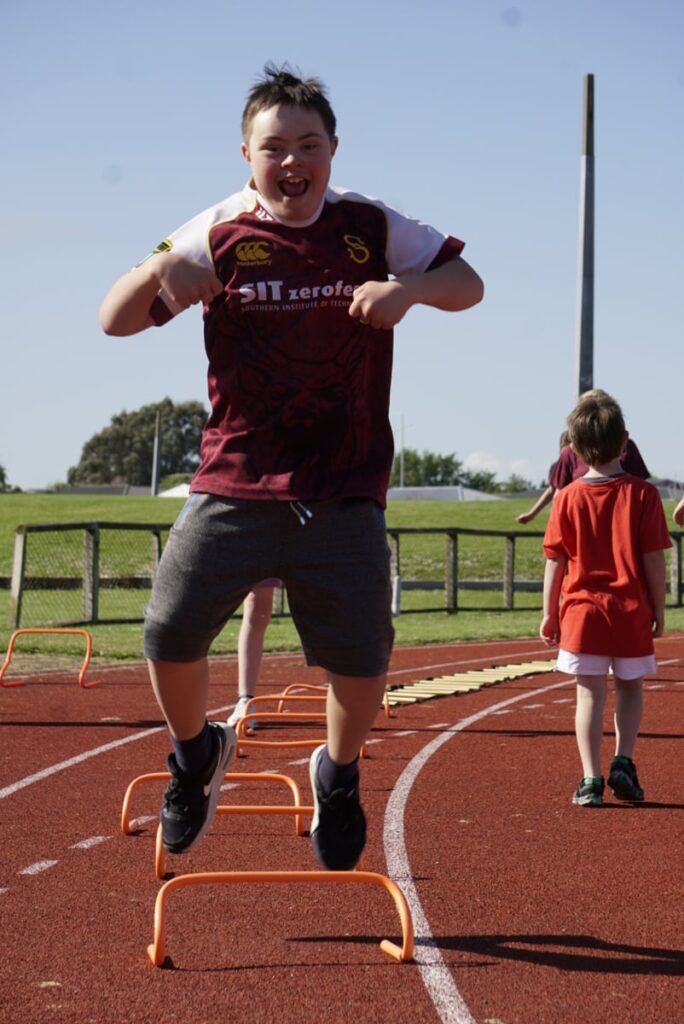Regional Community Para Sport Pilots

In 2022, PNZ mapped Para sport activities around the motu, revealing geographical gaps where Para sport participation opportunities could be improved. To this end, in 2023 and 2024, PNZ worked with other organisations to stage three regional community Para sport pilot programmes. The goal of these pilots is to increase the number of regular Para sport opportunities for disabled individuals in New Zealand and improve the involved organisations’ ability to offer inclusive and quality community Para sport experiences.
Gotcha Boccia Pilot
“Boccia is reaching new participants, including disabled people who have been previously inactive!”
PNZ collaborated with Boccia New Zealand, Disability Sport & Recreation Hawke’s Bay, Parafed Manawatū, and Parafed Taranaki to create a resource manual and a 6-week program called ‘Gotcha Boccia’ for people with physical, vision, and intellectual impairments. The programme recruited and trained nine activators and 38 participants took part – 45% of whom were new to Parafeds or similar organisations
The programme allowed participants to play Boccia in ways that maximised their participation using adaptable spaces, activities, and equipment. Participants reported positive impacts, including being more active, improved task focus and new friendships. Organisers learned how critical it is to use marketing and communication to reach new participants and activators.
Adaptive Run Jump Throw Pilot
“Never thought I could do athletics with my vision impairment!”
PNZ took the learning from Gotcha Boccia and built on it for the Adaptive Run Jump Throw Pilot with Athletics New Zealand, Parafed Gisborne Tairawhiti, Parafed Northland, Inclusive Activity Murihiku, Athletics Hawke’s Bay Gisborne, Whangarei Athletics Club, and Athletics Southland.
This second pilot aimed to integrate non-disabled and disabled participants into athletics club environments safely and positively. The team reviewed health and safety policies and club processes and provided upskilling opportunities for club volunteers and activators.
The Adaptive Run Jump Throw programme overcame challenges from unseasonal weather affecting outdoor facilities in Gisborne, Invercargill and Whangārei. Despite these obstacles, participants relished their experiences, and the project received positive engagement from Athletics Centres/Clubs. Athletics New Zealand led the co-design of an Adaptive Run Jump Throw resource. This has enabled Club volunteers and activators to learn new ways to adapt activities for wheelchair users and participants with vision impairment. This means these participants can join in with running, jumping and throwing activities alongside non-disabled peers. The way clubs run sessions is beginning to change, going from an event focus to an activities focus to enable better inclusion.
Serve, Spin, Smash! Pilot
“Before this program I had never participated in Para sport but I have had a disability for 8 years, this program has opened my eyes to the possibilities out there for people with disabilities.”
PNZ collaborated with Table Tennis New Zealand, Disability Sport Auckland, Parafed Canterbury, Parafed Waikato, Waitematā Table Tennis, Table Tennis Canterbury and Waikato Table Tennis to co-design and develop an 8-week Serve, Spin, Smash! programme. The programme leveraged shared learnings and best practices from previous pilots to enhance the operating approach for Para table tennis. This resulted in significant engagement and increase in participation as people with physical, vision and intellectual impairments interacted together. A total of 68 disabled participants and 26 activators were involved in the pilot.
Regional Sports Organisations (RSOs) built a better awareness and understanding of the diverse capabilities of their disabled participants, and the need to be flexible to accommodate various needs which is no different to delivering a programme for non-disabled participants. RSOs have also evaluated their membership options and are introducing Para table tennis categories in regional tournaments following the pilot, in order to make it attractive and welcoming for new members with health conditions and/or impairments. Further collaboration also resulted from the programme as one Parafed explored a joint funding application with a Special Olympics New Zealand club for combined sport sessions in their region.
The pilot gave the Table Tennis New Zealand an ability to strengthen connections and gain better appreciation for regional differences while reinforcing the value of ‘inclusion’ to its community which encompasses providing more opportunities and quality experiences for all, leading the integration of new coaches and officials frameworks, and ensuring that Para table tennis pathways are visible from community level through to performance. This pilot will have a large impact on other regions who wish to provide opportunities for disabled people.


























